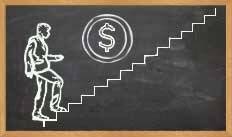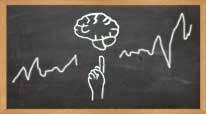- Education
- Trading Psychology
Trading Psychology
Psychological factor is vital for success or failure of the trader. Even with clear trading strategy and ability to analyze the market the vast majority of traders lose their money as they are unable to control emotions.
- What are the motivations for trading?
- How our emotions affect our decision making process?
- How to avoid the failure and become a successful trader?
Have you ever wondered about these questions?
Accept and stock to some rules which will help you get your priorities right and be successful in trading.
-
Rule 1: Be objective - it is impossible to win a million in a minute.
In stock trading decisive influence on the behavior of the trader is made by common to all feelings such as fear, greed, hope, etc. Weak and self-confident, greedy and slow; all these people are doomed to become the victims of the market.
The recognition of your own abilities, positive or negative qualities will help you as a trader to avoid failure. If we also add to this the ability of adequate evaluation of the psychological state and the behavior of the market, the success is guaranteed.

Not sure about your Forex skills level?
Take a Test and We Will Help You With The Rest
-
Rule 2: Do not be too greedy.
One of the driving forces, making you to take part in the work of speculative financial markets, is the possibility of earning "easy money" or, saying directly, greed. The result of greedy action is the motivation for making deals.
One can distinguish between two kinds of motivations:
- Rational motivation is expressed through cold prudence when taking decisions about making a deal;
- Irrational motivation is expressed through passion of the player; the others are the slaves of their emotions and are practically doomed to lose.
If the trader does not have a working plan formed before making deals, it speaks about the fact that the person is likely to work under the influence of greed but not reason.
-
Rule 3: Do not overrate your abilities – stick to your calculations.
The following factor motivating the trader to make deals is the hope to get profit. If the hope prevails over the profit calculation, the trader undertakes the risk of overestimating his abilities when analyzing the situation. Hope must be placed in subordinate relations both with calculation and greed. It is the great hope that brings beginners to failure. The trader living with hope is doomed to failure. It is hope that pushes traders towards making one of the most cruel mistakes - shift of the stop-loss order level.
-
Rule 4: Accept failure.
You will not be able to become a successful trader until you are ready both for victories and losses. Both of them are important and inseparable parts of the trading process. On the way of mastering the art of trade very often barriers are met. When the trader focuses on the problems (there can be numerous problems, for instance, lack of means, resources and knowledge), he feels anger, guilt, disappointment and dissatisfaction. But such an emotional state will not let him move forward. If the loss is unacceptable for the trader, he will not be able to close the losing position. When the trader is not ready to face losses, they usually become larger.
Trading philosophy

Do not confuse confidence with extreme self-confidence.
In trading, there is a tiny minority of winners and overwhelming majority of losers and the latter wish to know the secrets of success of the winners. But is there a difference between them? Yes, there is; the one who makes money week by week, month by month and year by year, trades keeping self-discipline. To the question of the secrets of his stable market triumph, such a winner answers without hesitating, that he was able to reach such heights by learning how to control his emotions and change his decisions to match the market.
Extreme confidence easily transforms into a dangerous quality, as people who are too much confident in their beliefs will not pay attention to important information which is valuable for their trading decisions. Confidence and negative emotions are directly related to each other in strength. In general, confidence and fear are similar senses by nature; only the one is with a "plus" sign and the other with - "minus" sign. If the person feels more confident, there is a little room left for confusion, alarm and fear.
How does the sense of self confidence develop?In a natural way, the person gets used to relying on himself in everything that he has to do without any hesitation. With such trust in himself he does not have to fear the market with its seemingly unpredictable and chaotic behavior. The matter here is not with him at all, as the market did not change but the inner world and psychological warehouse of the trader have.
How to become a successful trader?

There are two important factors for effective trading:
- set for yourself a principle of trading exclusively on the basis of self-discipline.
- learn how to remove the negative emotional energy of the latest trading experience
Due to the principle to self discipline, self trust is formed, which is necessary for successful trading.
In most cases each trader starts his way on the primary level without understanding trading psychology and without the principle of self discipline. So, he is likely to get psychological trauma (a psychological state which is capable of causing fear) of any severity. It is necessary to learn how to get rid of worries. When there is little fear as a consequence, you absorb new knowledge about the nature of the market.
In conclusion
To reach a success in trading, you need to undertake the whole responsibility for your decisions and actions.
